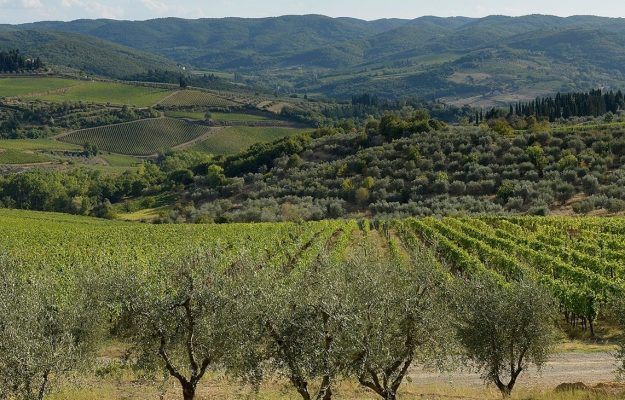According to many, the European Union’s opening up to “resistant” vines for designation of origin wines is “an epoch-making turning point” for the sector which, like so many other sectors, has to come to terms with a changing world and the fight against climate change, with all that this involves. But while many are in favor and see this as a major opportunity, as explained to WineNews in recent days by Professor Attilio Scienza, professor of viticulture at the University of Milan and considered a luminary in the sector, there are also those who see this as a risk for the future. Such as the Chianti Biodistrict association, led by Roberto Stucchi Prinetti, producer with Badia a Coltibuono, and to which many important and historic realities of the Chianti Classico territory belong, from Fontodi to Il Palagio, from Cafaggio to Castello d’Albola, from Conti Capponi to Felsina, from Dievole to Nittardi, from Lamole di Lamole to Villa Pomona, from Querciabella to Bibbiano, from Tolaini to Vignamaggio, to Castello di Meleto, to name a few.
“The news of the European Union’s “green light” for the introduction of so-called “resistant” vines is a cause for alarm and concern for us," the association explains in a note sent to WineNews, “and as the Chianti Biodistrict we feel called upon to intervene in order to clarify some essential aspects for us. The push to speed up the introduction of “resistant” vines is explicitly justified by the consideration, expressed by Professor Scienza on several occasions, that organic viticulture is a myth and not a reality. The reality is, instead, that of continuous growth in organic production, which in Chianti Classico”, write the producers of the Chianti Biodistrict, “has exceeded 50%. We are also well on the way to finding alternatives to copper and sulfur to prevent downy and powdery mildew, so accelerating the massive introduction of “resistant” hybrid vines right now is unjustified. Instead, it would be right to invest more in research into different solutions, in line with the findings of agroecology. On the contrary, authorizing “resistant” vines would have the effect of reducing biodiversity by encouraging the planting of vines with low genetic variability. The “resistance” of these varieties over time is yet to be proven: experience and agroecology indicate that there would be a significant risk of fungal disease-resistant strains developing over time. This would be detrimental to all winegrowers in the long term for a limited benefit that remains to be proven”.
According to the Biodistrict of Chianti, “particularly worrying, then, is the hypothesis of allowing their use in designations of origin: this would be a distortion of one of the fundamental added values of designations and organic farming, namely territoriality. The heritage of genetic and clonal variability must be preserved and enhanced, and shortcuts such as the one represented by these hybrids must be avoided. The other extremely negative effect would be the push to extend vineyard plantings in unsuitable areas, which would be truly inappropriate and would further weaken small and medium-sized farms, which are the backbone of the system and should be encouraged instead”. In short, the Biodistrict of Chianti does not like the idea, in the words of its president Roberto Stucchi Prinetti. As in other cases”, writes the association, “this is a shortcut that would favour the most aggressive viticulture from an environmental and social point of view. Also very worrying is the call to accelerate the use of genetic editing techniques such as Nbt, techniques that have been rightly criticized by organic associations for the risks they entail. Organic viticulture directs cultivation choices towards territorial vocations and guides agronomic practices towards maintaining soil fertility and the balance of the agro-ecosystem. This is the main road that must be pursued, and this is why we ask you to reject this push to accelerate the introduction of hybrids that could damage the most authentically innovative part of our viticulture”. The debate, as always, is open, on an issue that will inevitably hold sway in the coming months, and which will be crucial for the future of the wine world.
Copyright © 2000/2026
Contatti: info@winenews.it
Seguici anche su Twitter: @WineNewsIt
Seguici anche su Facebook: @winenewsit
Questo articolo è tratto dall'archivio di WineNews - Tutti i diritti riservati - Copyright © 2000/2026







































































































































































































